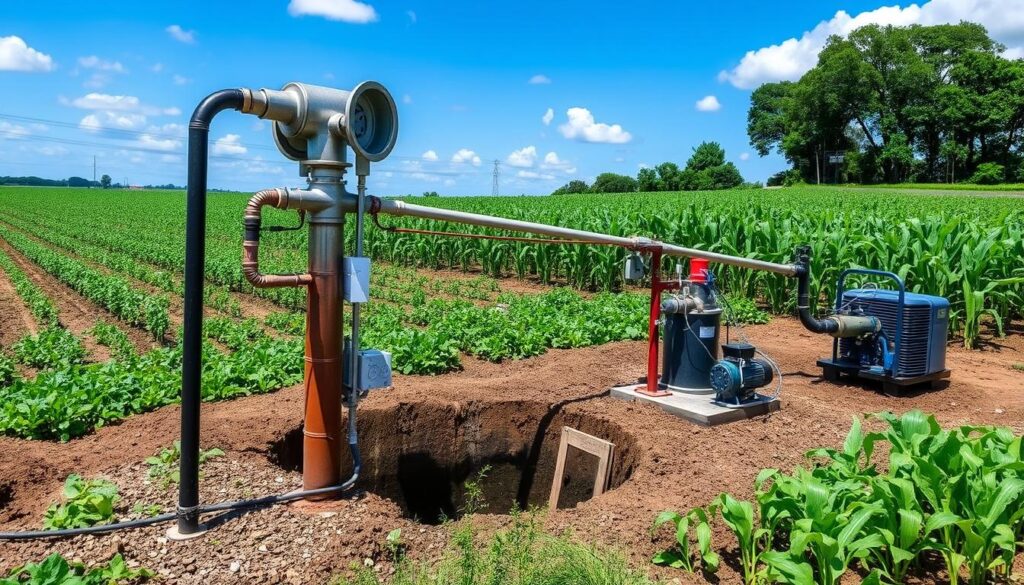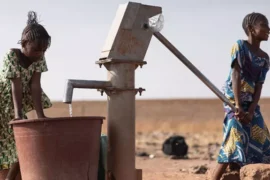Key Takeaways
- Borehole water can be used for irrigation in Ghana, providing a reliable and sustainable water source for agricultural practices.
- Water quality assessments are essential to ensure borehole water is suitable for irrigation and does not harm crops.
- Regular testing for contaminants is necessary to maintain soil health and optimize crop yields.
- Compliance with local regulations regarding water use is crucial to prevent over-extraction and protect groundwater resources.
- Borehole irrigation reduces dependency on rainfall, enhancing food security and promoting efficient water conservation methods.
Understanding Borehole Water and Its Sources
Understanding borehole water begins with recognizing its origins and importance in agricultural practices, especially in regions like Ghana. Borehole water is sourced from underground aquifers, formed by the natural filtration of rainwater through soil and rock layers. When you engage in borehole construction, it is essential to select the right location and depth to access these aquifers effectively. The water quality from boreholes can vary greatly based on geological formations and contamination factors. It is important to conduct thorough water quality assessments before utilizing it for irrigation. These assessments help identify key parameters, such as pH, salinity, and the presence of harmful substances. By ensuring high water quality, you can optimize crop yields and promote sustainable farming practices. Understanding these elements is crucial, as they influence not only the success of agricultural activities but also the long-term viability of borehole systems in Ghana.Benefits of Using Borehole Water for Irrigation
Utilizing borehole water for irrigation offers numerous advantages that can greatly enhance agricultural productivity in Ghana. First, it provides a reliable water source, reducing dependence on erratic rainfall patterns. This reliability supports consistent crop growth and yields, essential for food security and farmer incomes. Furthermore, implementing borehole irrigation aligns with sustainability practices, allowing you to optimize water use and minimize waste. Since borehole systems can be tailored to specific agricultural needs, they promote efficient water conservation methods, ensuring that every drop counts. You can also select crops that thrive in local conditions, maximizing the benefits of this resource. Additionally, borehole water can reduce costs associated with purchasing water from other sources, making it economically viable for you. Overall, integrating borehole water into your irrigation strategy not only elevates productivity but also fosters sustainable agricultural practices crucial for Ghana’s future.Challenges and Considerations in Borehole Water Irrigation
While borehole water irrigation presents significant benefits, several challenges and considerations must be addressed to guarantee its successful implementation in Ghana. First, water quality is critical; contaminants can affect soil health and crop yield. You’ll need to regularly test the water to verify it meets agricultural standards. Furthermore, irrigation efficiency is essential; improper systems can lead to water wastage, undermining the benefits of borehole use. Cost implications are another factor; initial drilling and setup can be high, and ongoing maintenance requirements demand attention and resources. Additionally, you must consider the environmental impact of extracting groundwater, as over-extraction can deplete local aquifers. Finally, regulatory compliance is important; adhering to local laws regarding water use protects both your investment and the environment. By addressing these challenges, you can optimize the use of borehole water for irrigation in Ghana effectively.Frequently Asked Questions
How Deep Should a Borehole Be for Effective Irrigation?
For effective irrigation, you’ll want your borehole depth to range between 30 to 100 meters. This guarantees ideal water yield and irrigation efficiency, allowing for sustainable agricultural practices while minimizing groundwater depletion risks.What Is the Cost of Drilling a Borehole in Ghana?
The cost of drilling a borehole in Ghana varies based on borehole types and drilling companies. Typically, you’ll spend between $3,000 to $10,000, influenced by depth, location, and required permits. Always get multiple quotes.Can Borehole Water Affect Soil Fertility Over Time?
Yes, using borehole water can impact soil fertility over time. If the water lacks essential minerals, it might lead to nutrient depletion in the soil, affecting crop growth and overall soil health negatively.Are There Legal Regulations for Borehole Water Usage in Ghana?
Yes, there are legal regulations for borehole water usage in Ghana. You must guarantee regulatory compliance by adhering to specific usage guidelines set by authorities, which aim to protect water resources and promote sustainable management practices.How Often Should Borehole Water Quality Be Tested for Irrigation?
You should conduct water testing at least twice a year for effective irrigation management. Regular assessments help guarantee the borehole water meets quality standards, preventing potential crop damage and optimizing irrigation practices for better yield.Conclusion
To sum up, using borehole water for irrigation in Ghana can be a sustainable solution, offering numerous benefits such as reliable access to water and reduced dependency on rainfall. However, you must consider the challenges, including potential salinity issues and regulatory compliance. By carefully evaluating the quality and quantity of borehole water, and implementing proper management practices, you can maximize its advantages while minimizing drawbacks. Ultimately, with informed decisions, borehole water can greatly enhance agricultural productivity.Discover more from Ghana Scoop
Subscribe to get the latest posts sent to your email.





